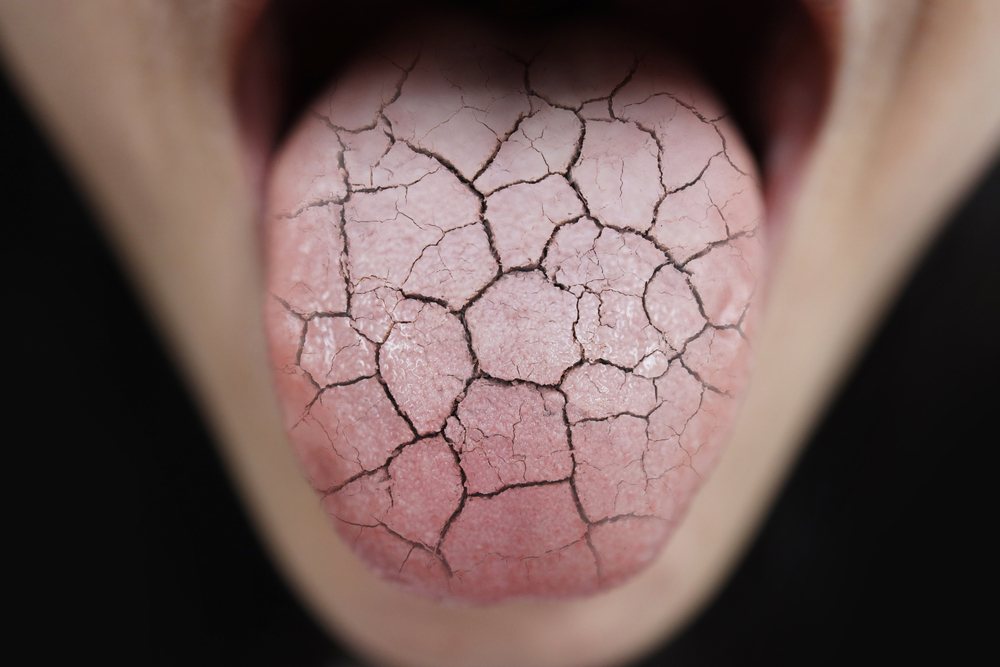My Throat Is Dry Even When I Drink Water - Have you ever felt like you constantly have to drink water because your throat is so dry? Or even worse, have you ever taken a pill and felt like it was stuck in your throat? If so, you're not alone. Many people experience dryness in their mouth and throat, and it can be a frustrating and uncomfortable experience. But don't worry, there are a few things you can do to alleviate this issue.
Why Is My Mouth Dry After Drinking Water?
Dehydration
One of the most common reasons your mouth and throat can feel dry, even after drinking water, is dehydration. When your body doesn't have enough fluids, it can't produce enough saliva, which can result in dryness. This can happen when you're not drinking enough water or if you're losing fluids through sweating or diarrhea.

Medications
Another common cause of dry mouth and throat is medications. Some medications can reduce the amount of saliva your body produces, resulting in dryness. So, if you notice a change in your mouth or throat after starting a new medication, be sure to speak with your healthcare provider.

Diet
What you eat can also have an effect on your mouth and throat. Consuming too much salt or sugar can lead to dehydration, which we already know is a cause of dryness. Additionally, eating spicy or acidic foods can irritate your mouth and throat, making them feel dry.

Medical Conditions
There are certain medical conditions that can cause dryness in the mouth and throat. For example, Sjogren's Syndrome is an autoimmune disorder that can reduce the amount of saliva your body produces. Other conditions, such as diabetes or Parkinson's disease, can also cause dryness.

How to Alleviate Dryness in Your Mouth and Throat
Drink More Water
This may seem obvious, but the first thing you should do if you're experiencing dryness in your mouth and throat is to drink more water. Try to drink at least 8 glasses of water a day, and more if you're exercising or in a dry climate.
Avoid Certain Foods and Beverages
If you're noticing dryness after eating certain foods, try to avoid them. This may include spicy or acidic foods, as well as foods high in salt or sugar. Additionally, caffeine and alcohol can also lead to dehydration, so consume them in moderation.
Breathe Through Your Nose
If you tend to breathe through your mouth, you may notice dryness in your mouth and throat. Try to breathe through your nose whenever possible to help reduce the amount of dry air entering your mouth.
Use a Humidifier
If you live in a dry climate or spend a lot of time indoors with the air conditioning on, consider using a humidifier. This can help add moisture to the air, which can help alleviate dryness in your mouth and throat.
Chew Gum
Chewing gum can help stimulate saliva production, which can reduce dryness in your mouth and throat. Just be sure to choose sugar-free gum to avoid any additional sugar intake.
Speak with Your Healthcare Provider
If you've tried the tips above and you're still experiencing dryness in your mouth and throat, speak with your healthcare provider. They can help determine if there's an underlying medical condition that needs to be addressed. They may also be able to recommend additional treatments or medications to help alleviate your symptoms.
Don't ignore dryness in your mouth and throat. It may seem like a minor inconvenience, but it can be a sign of a more serious health issue. Try the tips above to alleviate your symptoms, and speak with your healthcare provider if you're still experiencing dryness.
View more articles about My Throat Is Dry Even When I Drink Water